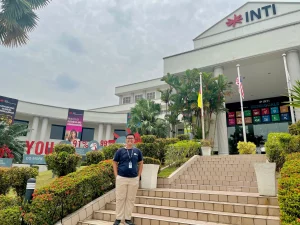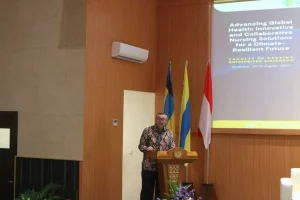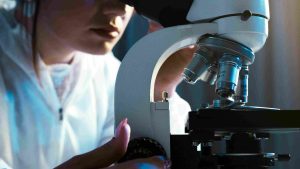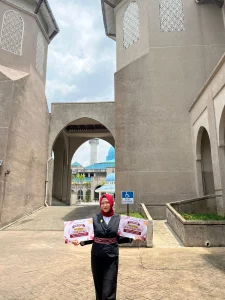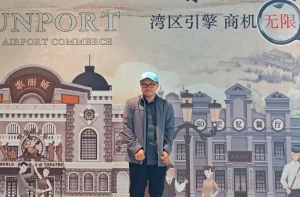UNAIR NEWS — Universitas Airlangga’s SDGs Center has partnered with the Sidoarjo Regency Government to tackle air pollution from small- and medium-sized tofu production industries in the Krian subdistrict. This partnership was formalized in a stakeholder discussion held on Wednesday, April 16, 2025, at the Sidoarjo Regional Secretary’s Office.
Dr. Fenny Apridawati, SKM, MKes, Sidoarjo’s Regional Secretary, noted that the local government frequently receives complaints about deteriorating air quality, particularly from tofu producers who use plastic and wood as fuel sources.
“We’ve received numerous complaints over time. That’s why we’ve opened discussions with Real Estate Indonesia (REI) and UNAIR. Universities shouldn’t just focus on theory—they should apply knowledge in ways that serve the public good,” she stated.
Need for targeted support
While the tofu industry contributes significantly to household income, its environmental and health impacts often go unaddressed. According to 2023 data from Statistics Indonesia (BPS), the number of pneumonia cases in Sidoarjo has steadily increased, signaling unhealthy air conditions.

In response, UNAIR—through its SDGs Center, Faculty of Public Health (FKM), and Faculty of Advanced Technology and Multidiscipline (FTMM)—has proposed several practical solutions. Dr. R. Azizah, SH, MKes, an environmental health expert at FKM UNAIR, highlighted that PM2.5 levels near tofu factories have exceeded acceptable air quality standards, with concentrations surpassing 55 µg/m³.
Dr. Azizah emphasized that the tofu industry can continue operating if supported through appropriate guidance. “These factories should remain in operation, but they must be managed properly to mitigate pollutants and harmful gases. Our goal is to protect public health and air quality while supporting sustainable industry,” she explained.
Addressing pollution through integrated action
Dr. Azizah also underscored the need for a coordinated approach to air pollution mitigation, combining interdisciplinary expertise within a hexahelix collaboration framework. This model includes academia, government, private sector, civil society, NGOs, and the media to jointly address PM2.5 pollution and its health effects.
“That’s why we involve multiple faculties. FKM addresses air quality, FTMM contributes technological solutions, and FST adds scientific expertise. All are working together under the SDGs Center umbrella,” she added.
One of the proposed technical solutions is the installation of standardized smokestacks. According to Dr. Azizah, chimney infrastructure is a key component in reducing emissions, alongside changes in community behavior. FTMM lecturer Rodik Wahyu Indrawan, SST, MTrT, elaborated on chimney design, stating they must meet Indonesian National Standards (SNI).
“We are also conducting research on chimneys, and we’re looking for the appropriate SNI (Indonesian National Standard). The height can be adjusted to around 9 to 10 meters,” he said. In addition, Rodik added, installing an air filtration system is also necessary to ensure the chimney’s effectiveness.
Commitment to SDGs
This collaboration demonstrates UNAIR’s active commitment to advancing the Sustainable Development Goals (SDGs). Air pollution from plastic-burning tofu production intersects with several goals: SDG 3 (Good Health and Well-being), SDG 11 (Sustainable Cities and Communities), SDG 12 (Responsible Consumption and Production), and SDG 13 (Climate Action).
By employing a science-based, multi-stakeholder approach, UNAIR is helping to guide household industries toward greener practices. The initiative also supports SDG 17 (Partnerships for the Goals), reinforcing the SDGs Center’s role as a driver of environmental and social change through locally relevant, globally informed solutions.
The effort exemplifies the crucial role of universities in mainstreaming the SDGs through applied research, community engagement, and sustainable innovation, supported by strong collaboration across sectors in the hexahelix model.
Author: Yulia Rohmawati



